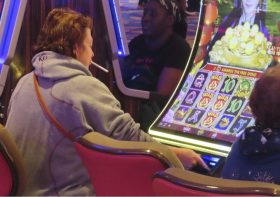Michigan Casinos, Sportsbooks, iGaming Platforms Deliver State Half-Billion Dollars

The Michigan Gaming Control Board (MGCB) reports that 2024 was a record-setting year for its commercial and tribal gaming industries.

The gaming regulator says the state benefited to the tune of more than half of a billion dollars from the three brick-and-mortar casinos in Detroit, retail and online sports betting, iGaming, and fantasy sports. The MGCB collected $501.4 million primarily for the Michigan School Aid Fund, which benefits K-12 public education.
MGM Grand Detroit, MotorCity, and Hollywood Casino at Greektown accounted for $99.8 million of the state gaming tax receipts. Retail sports betting at the three casinos added about $655K.
Online gaming, which includes revenue from tribal casinos that have iGaming partnerships with commercial operators, generated almost $388.5 million in associated state taxes. Mobile sports bets directed $12.9 million to the Lansing capital. Taxes on fantasy sports fees amounted to $297K.
Banner Year
Michigan is the fourth-richest commercial gaming state in the country behind Nevada, New Jersey, and Pennsylvania. The state’s gaming growth in recent years has been due to its legal iGaming market, which continues to take hold among the gaming public.
As we look back on another successful year, I am proud of the significant impact the Michigan Gaming Control Board continues to have on our state and its residents,” said MGCB Executive Director Henry Williams said. “From supporting education and first responders to tackling illegal gambling, the MGCB remains steadfast in its mission to protect consumers and enhance the public good.”
Not everyone agrees that the expansion of online slot machines, table games, and sports betting to the internet was in the public’s best interest. Mental health and addiction counselors say casinos in everyone’s pocket have led to heightened rates of problem gambling and the societal strains that come with it like bankruptcies, broken marriages and families, depression, and substance abuse.
Rather than get up and get dressed and go to a casino, I am now able to gamble from my phone, from my computer, from my living room,” Alia Lucas, a gambling disorder specialist with the Michigan Department of Health and Human Services, told Michigan Public Radio. Lucas says online gambling in Michigan, which is one of only seven states with regulated iGaming, has increased the state health agency’s workload.
“Our interest is making sure the public that’s gambling is doing so healthily,” Lucas said. “It’s required us to be more creative in our approach to make sure we’re providing the necessary information as to what to look for as far as the signs, how to get help, and where that help is.”
Gaming Grants
Along with the School Aid Fund, the MGCB said it made several critical contributions to state programs from the gaming taxes it collected. They include a $4 million donation to the First Responder Presumed Coverage Fund and $3.7 million to the Agriculture Equine Industry Development Fund.
The MGCB continues to fund responsible gaming programs and resources. The agency directed $3.75 million to the MGCB’s “Don’t Regret the Bet” campaign, an Emmy Award-winning program that promotes responsible gaming participation. The MGCB also gave $3 million to the state’s Compulsive Gambling Prevention Fund.
Michigan taxes in-person casino revenue at 8.1% (another 9.9% goes to the City of Detroit). Sports betting revenue is taxed at 8.4% for commercial casino sportsbooks and tribal online books. Commercial online sportsbooks are taxed higher at 9.65%. Online commercial and tribal iGaming taxes range based on total annual revenue from 20% to 28%.
The post Michigan Casinos, Sportsbooks, iGaming Platforms Deliver State Half-Billion Dollars appeared first on Casino.org.



Leave a Reply